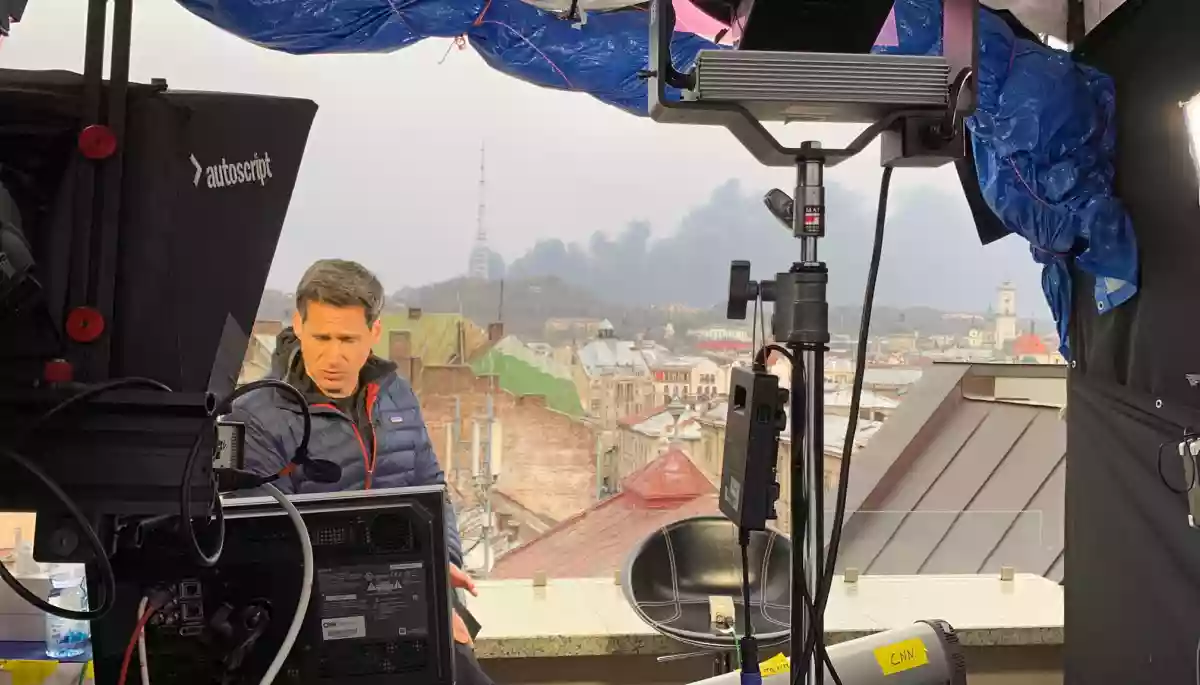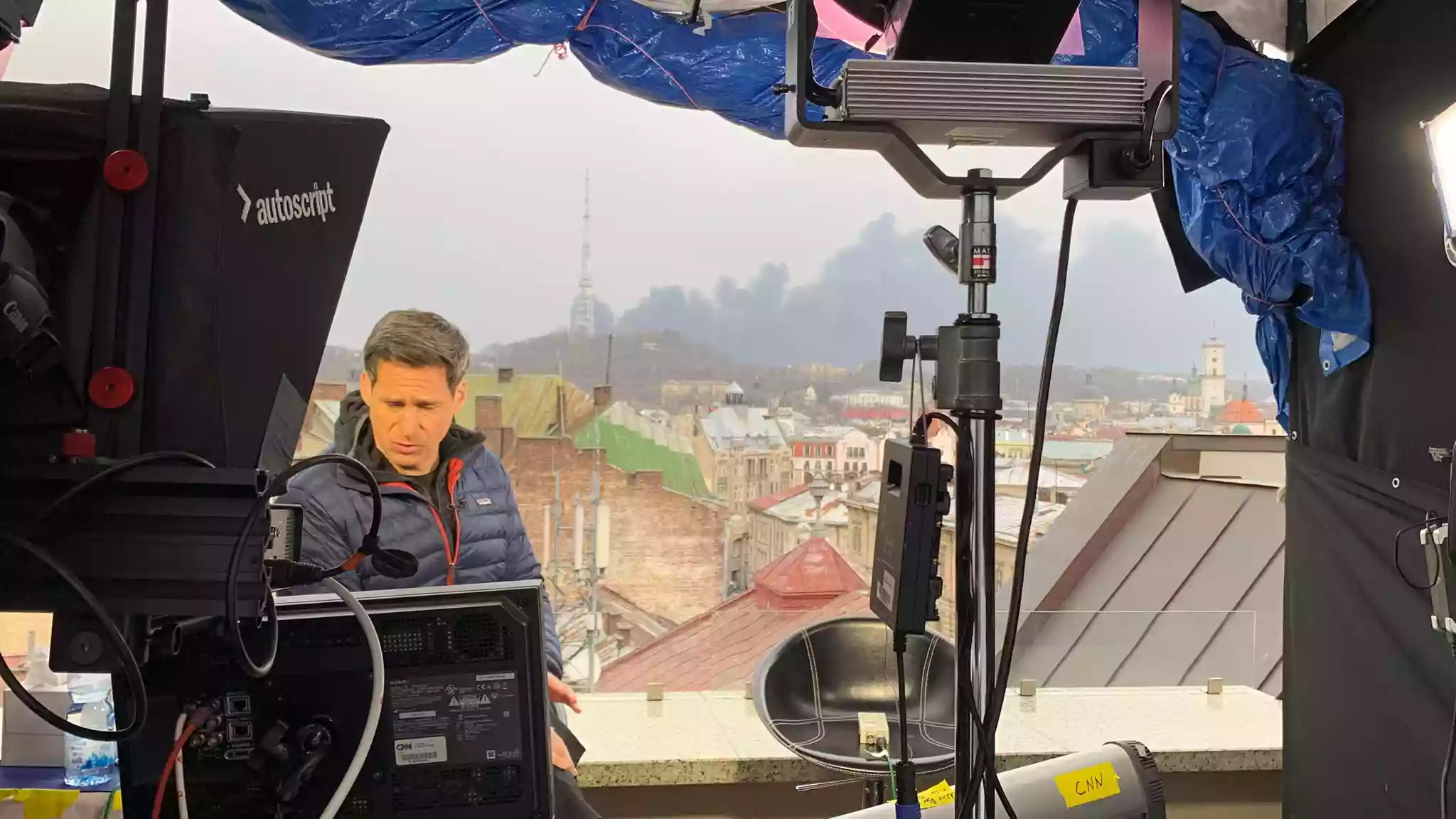
Photos and videos of missile hits: why foreign media can take them, and Ukrainians cannot?
Photos and videos of missile hits: why foreign media can take them, and Ukrainians cannot?


We live quite far from the place that was hit by first missiles today, so we even had time to argue was it smoke or a black rain cloud on the horizon. Ukrainian media reported that "explosions were heard in Lviv." Local authorities reminded that nobody was allowed to publish photos and videos from the place of impact and ordered everyone to stay in shelters. And then reminded that nothing could be published five more times.
I will not describe the feeling of someone who knows that missiles have hit some place in their city but does not know exactly what place. Too many people in Ukraine know that feeling. You just have to find out where it happens to calm this crazy anxiety down a bit. So, I started looking through all possible open sources, but found only mentions of a general direction. Until a fellow journalist advised me to go on Twitter and enter ‘Lviv’.
The search results included a lot of videos and photos made by Western media. Someone took a panoramic picture from the height — probably from Znesinnya or Vysokyi Zamok. Someone took a photo right from the window of an apartment or hotel room nearby. Some particularly skilled war correspondents in helmets and bulletproof vests (it is a war, isn’t it?) were going live from that very street, where firefighters were preparing to extinguish the burning oil depot.
Twitter was also full of outraged posts from Ukrainians: what the hell, we were told that it was prohibited even to hint at the place of explosion and at the same time CNN was broadcasting live from the place of impact!
Really — what the hell?
The Ministry of Defense urged people not to publish exact locations of missile hits. Ukrainian media try not to do that, and they are more or less successful in it. So far, few hours have passed and the whole world has seen that wretched oil depot, but the decent Ukrainian media do not write about its exact location, because Ukrainian journalists have realized that they should not do it. Ordinary Ukrainians have taken that warning even too personally, and now they see betrayal and "adjustment of fire" even in official reports or hints that there has been an explosion in some city.
The information about the exact place of impact of a Russian missile hardly helps to "adjust the fire", because the missiles work by coordinates, unlike the artillery. But reports of the destruction can be very useful for Russians; for example, they may decide to fire a couple more missiles to the same spot to destroy what has survived. Not to mention that these bastards are probably happy to watch the video of Ukraine burning because of their missiles that got through our air defense.
There is no doubt that the presence of correspondents and camera crews of world media in Ukraine is very important now. It is in our best interest that they talk as much as possible about the war, the resistance of Ukraine and the atrocities of the Russians. That is why we need to cooperate with foreign journalists, help them in every possible way and let them do their work.
However, I think it is fair to require the foreign journalists, and especially those camera crews that are capable of filming and showing live the consequences of Russian missile hits, not to do so. And those foreign journalists who violate this requirement should be sadly and gratefully escorted to the state border. It is if the Ministry of Defense believes that such videos are really damaging. And the SSU also considers it quite illegal.
Or, while we are at it and nobody cares, let us consider the ban on showing the places of missile impact a meaningless paranoia, so that Ukrainian camera crews, photographers and reporters can give similar exclusive materials to their audience. After all, this information is much more important and urgent for the Ukrainian audience, as those missiles fall on their heads, and they have to bury the victims of missile strikes and rebuild destroyed houses.
I am writing this to the sound of air raid sirens outside — again. I hope that it ends with today's two hits, and viewers of CNN, BBC and Polish television will not see any more "roasted" pictures from Lviv today.












